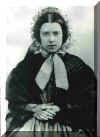

|
|
|
1791 - 18001791 Sugar prices rise steeply John Bell, printer, abandons the "long s" (the "s"
that looks like an "f") Establishment of the Ordnance Survey of Great Britain December 4: First publication of The Observer – oldest Sunday newspaper 1792 Repression in Britain (restrictions on freedom of the press) – Fox gets
Libel Act through Parliament, requiring a jury and not a judge to determine
libel Boyle's Street Directory published October 1: Introduction of Money Orders in Britain Coal-gas lighting invented by William Murdock, an Ayrshire Scot December 1: King's Proclamation drawing out the British militia 1793 February 11: England declares war on France (1793-1802) Execution of Louis XVI April 15: £5 notes first issued by the Bank of England 1794 Abolition of Parish Register duties Battle of Glorious First of June October 6: The prosecutor for Britain, Lord Justice Eyre, charges
reformers with High Treason – he argued that, since reform of parliament would
lead to revolution and revolution to executing the King, the desire for reform
endangered the King's life and was therefore treasonous 1795 The Famine Year Foundation of the Orange Order Speenhamland Act proclaims that the Parish is responsible for bringing up
the labourer's wage to subsistence level – towards the end of the eighteenth
century, the number of poor and unemployed increased dramatically – price
increases during the Napoleonic Wars (1793-1815) far outstripped wage rises –
many small farmers were bankrupted by the move towards enclosures and became
landless labourers – their wages were often pitifully low Pitt and Grenville introduce "The Gagging Acts" or "Two
Bills" (the Seditious Meetings and Treasonable Practices Bills) –
outlawed the mass meeting and the political lecture Consumption of lime juice made compulsory in Royal Navy 1796 May 14: Dr Edward Jenner gave first vaccination for smallpox in
England Holden's Triennial Directory published Pitt's "Reign of Terror": More treason trials – leading
radicals emigrate 1797 England in Crisis, Bank of England suspends cash payments February 26: First £1 note issued by Bank of England April-June: Mutinies in the British Navy at Spithead and Nore Tax on newspapers (including cheap, topical journals) increased to
repress radical publications 1798 February-October: The Irish Rebellion; 100,000 peasants revolt; approximately
25,000 die – Irish Parliament abolished First planned human experiment with vaccination, to test theories of
Edward Jenner 1799 January 9: Pitt brings in 10% income tax July 12: Repressive legislation in Britain against political
associations and combinations Foundation of Royal Military College Sandhurst by the Duke of York Foundation of the Royal Institution of Great Britain Post Office New Annual Directory 1800 July 2: Parliamentary union of Great Britain and Ireland Electric light first produced by Sir Humphrey Davy Use of high pressure steam pioneered by Richard Trevithick Earliest Bible Christian registers Royal College of Surgeons founded
|
|
|